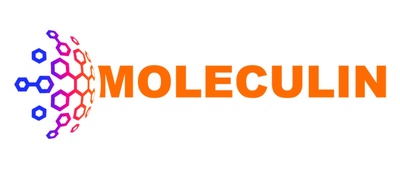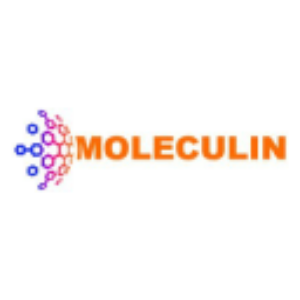Moleculin Receives Approval from the UK's Medicines and Healthcare Products Regulatory Agency (MHRA) for Protocol Amendment to Phase 1a Clinical Trial of WP1122 for the Treatment of COVID-19
Moleculin Biotech (MBRX) has received approval from the UK's MHRA to initiate a first-in-human Phase 1a study of WP1122, targeting COVID-19. The study focuses on safety and pharmacokinetics with dosing expected to start soon. WP1122, a prodrug of 2-deoxy-D-glucose, exhibits enhanced antiviral and anticancer properties. The trial will assess single and multiple ascending doses in approximately 80 healthy volunteers in the UK. Successful preclinical results position WP1122 as a promising candidate for treating resistant tumors and viral infections.
- Approval received from UK's MHRA for Phase 1a study of WP1122.
- WP1122 shows greater potency against SARS-CoV-2 than 2-DG in preclinical models.
- Study aims to enroll approximately 80 healthy volunteers in the UK.
- Uncertainties exist regarding the replication of preclinical results in human trials.
- Potential issues with recruiting subjects for future Phase 2 studies due to COVID-19 variability.
– Dosing for first-in-human Phase 1a study to evaluate safety and pharmacokinetics of WP1122 in healthy volunteers and establish maximum tolerated dose expected to commence imminently –
HOUSTON, May 10, 2022 /PRNewswire/ -- Moleculin Biotech, Inc., (Nasdaq: MBRX) ("Moleculin" or the "Company"), a clinical stage pharmaceutical company with a broad portfolio of drug candidates targeting highly resistant tumors and viruses, today announced that it has received approval from the United Kingdom's (UK) MHRA to proceed with a first-in-human Phase 1a study to evaluate the safety and pharmacokinetics of WP1122 in healthy volunteers for the treatment of COVID-19 (MB-301). The approval follows Moleculin's having submitted a protocol amendment allowing for a higher ratio of diluting excipients to drug substance to facilitate a faster and simpler mixing procedure before drug administration.
Walter Klemp, Chairman and Chief Executive Officer of Moleculin commented, "Approval of the protocol amendment from the MHRA is another encouraging step forward. We believe the antiviral effect demonstrated by WP1122 in preclinical models to-date suggests that the drug may have the potential to meet the critical need for a pan-viral therapy that could address not only COVID-19 and its variants, but also other viruses that cause human disease. As we are also developing this drug for human cancers, this Phase 1 trial may also provide information that helps advance our cancer research. We remain committed to advancing the development of WP1122 and look forward to the commencement of dosing in healthy volunteers, which we expect later this month."
WP1122, the Company's lead metabolism/glycosylation inhibitor, is a prodrug of a well-known glucose decoy called 2-deoxy-D-glucose (2-DG), currently being developed for inhibition of viral replication and disease manifestations in humans infected with SARS-CoV-2, the virus responsible for COVID-19. The mechanism of action of 2-DG includes both the inhibition of glycolysis and the disruption of glycosylation, two processes that are important to both viral activity and tumor development. WP1122 was developed as a 2-DG prodrug to provide a more favorable pharmacological profile, and was found to have greater potency than 2-DG alone in preclinical models where tumor cells require higher glycolytic activity than normal cells. WP1122 has also been shown to have a more potent antiviral effect than 2-DG against SARS-CoV-2 in MRC-5 cells (one of the most common human-derived cell lines used for antiviral research) in culture.
The Phase 1a study in healthy human volunteers will investigate the effects of a single ascending dose (SAD) and multiple days of ascending dosing (MAD) of WP1122 administered as an oral solution. Dose escalation will take place in sequential SAD cohorts, and MAD will start as soon as SAD has completed at least 3 dosing cohorts in which WP1122 is found to be safe and well-tolerated. This study in healthy volunteers will explore safety and pharmacokinetics (PK), and subsequent clinical development will be in patients infected with SARS-CoV-2 to further evaluate safety and establish a favorable risk/benefit profile. The Company expects to enroll approximately 80 healthy volunteers in the United Kingdom.
For more information about the study, please visit clinicaltrials.gov and reference identifier NCT05195723. Moleculin Biotech is also in the process of identifying additional countries where potential future Phase 2 COVID-19 clinical studies could occur.
About WP1122
WP1122 was developed as a 2-DG prodrug to provide a more favorable pharmacological profile and was found to have greater potency than 2-DG alone in preclinical models where tumor cells require higher glycolytic activity than normal cells. WP1122 has also been shown to have a greater antiviral effect than 2-DG against SARS-CoV-2 in MRC-5 cells in culture. The improved pharmacokinetic and pharmacodynamic (PK/PD) profile of WP1122 compared to 2-DG was noted in female mice following oral dosing at equimolar (i.e., equivalent levels of 2-DG) doses.
The Company is also in the process of identifying additional countries where potential future Phase 2 COVID-19 clinical studies could occur, although the volatility and unpredictability of COVID-19 incidence in various countries may limit the ability to recruit certain subjects and could make it infeasible to conduct a Phase 2 clinical trial there. Additionally, Moleculin recently received IND clearance from the U.S. Food and Drug Administration (FDA) to initiate a Phase 1 study of WP1122 for the treatment of Glioblastoma Multiforme (GBM), which the Company expects to commence in 2022.
About Moleculin Biotech, Inc.
Moleculin Biotech, Inc. is a clinical stage pharmaceutical company focused on the development of a broad portfolio of drug candidates for the treatment of highly resistant tumors and viruses. The Company's lead program, Annamycin is a next-generation anthracycline designed to avoid multidrug resistance mechanisms with little to no cardiotoxicity. Annamycin is currently in development for the treatment of relapsed or refractory acute myeloid leukemia (AML) and soft tissue sarcoma (STS) lung metastases.
Additionally, the Company is developing WP1066, an Immune/Transcription Modulator capable of inhibiting p-STAT3 and other oncogenic transcription factors while also stimulating a natural immune response, targeting brain tumors, pancreatic and other cancers, and WP1220, an analog to WP1066, for the topical treatment of cutaneous T-cell lymphoma. Moleculin is also engaged in the development of a portfolio of antimetabolites, including WP1122 for the potential treatment of COVID-19 and other viruses, as well as cancer indications including brain tumors, pancreatic and other cancers.
For more information about the Company, please visit www.moleculin.com and connect on Twitter, LinkedIn and Facebook.
Forward-Looking Statements
Some of the statements in this release are forward-looking statements within the meaning of Section 27A of the Securities Act of 1933, Section 21E of the Securities Exchange Act of 1934 and the Private Securities Litigation Reform Act of 1995, which involve risks and uncertainties. Forward-looking statements in this press release include, without limitation, the commencement date of the Phase 1a study, whether the results of Moleculin's preclinical models can be replicated in human trials, and Moleculin's ability to identify additional countries where potential future Phase 2 COVID-19 clinical studies could occur. Although Moleculin believes that the expectations reflected in such forward-looking statements are reasonable as of the date made, expectations may prove to have been materially different from the results expressed or implied by such forward-looking statements. Moleculin has attempted to identify forward-looking statements by terminology including 'believes,' 'estimates,' 'anticipates,' 'expects,' 'plans,' 'projects,' 'intends,' 'potential,' 'may,' 'could,' 'might,' 'will,' 'should,' 'approximately' or other words that convey uncertainty of future events or outcomes to identify these forward-looking statements. These statements are only predictions and involve known and unknown risks, uncertainties, and other factors, including those discussed under Item 1A. "Risk Factors" in our most recently filed Form 10-K filed with the Securities and Exchange Commission ("SEC") and updated from time to time in our Form 10-Q filings and in our other public filings with the SEC. Any forward-looking statements contained in this release speak only as of its date. We undertake no obligation to update any forward-looking statements contained in this release to reflect events or circumstances occurring after its date or to reflect the occurrence of unanticipated events.
Investor Contact:
JTC Team, LLC
Jenene Thomas
(833) 475-8247
MBRX@jtcir.com
![]() View original content to download multimedia:https://www.prnewswire.com/news-releases/moleculin-receives-approval-from-the-uks-medicines-and-healthcare-products-regulatory-agency-mhra-for-protocol-amendment-to-phase-1a-clinical-trial-of-wp1122-for-the-treatment-of-covid-19-301543684.html
View original content to download multimedia:https://www.prnewswire.com/news-releases/moleculin-receives-approval-from-the-uks-medicines-and-healthcare-products-regulatory-agency-mhra-for-protocol-amendment-to-phase-1a-clinical-trial-of-wp1122-for-the-treatment-of-covid-19-301543684.html
SOURCE Moleculin Biotech, Inc.
FAQ
What is the purpose of the Phase 1a study for WP1122?
When is the dosing for WP1122 expected to begin?
What are the expected outcomes of the WP1122 study?
How does WP1122 compare to 2-DG in terms of effectiveness?








